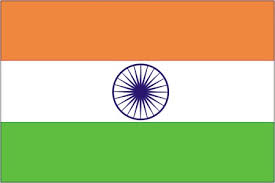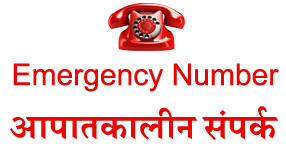Agenda Item No. 2 Technical Cooperation
International Atomic Energy Agency
Board of Governors’ Meetings
(November 19, 2018)
Agenda Item No. 2
Technical Cooperation
Statement by the Governor for India
Ambassador Renu Pall
Madam Chair,
We associate with the G-77 and China Statement delivered by the distinguished Ambassador of Ecuador and would like to make a few additional remarks in our national capacity.
Madam Chair,
India believes that Technical Cooperation is central to the mandate of the IAEA in promoting the “contribution of atomic energy to peace, health and prosperity throughout the world”. For this core statutory function to be performed effectively, it is important that the resources available for TC are sufficient, assured and predictable and are directed towards bringing tangible benefits to Member States in a most efficient and effective manner.
Mindful of the fact that TC programme is a shared responsibility, it is crucial that Member States fulfil their individual responsibilities and contribute in full and on time to the Technical Cooperation Fund. India continues to fulfil its obligations and call upon all member states to pay their assessed contribution in full and on time.
We also request the Agency to continue to explore and expand ways and means to render resources for the Technical Cooperation Programme to be sufficient, assured and predictable.
Madam Chair,
India draws great economic benefits from the non-power applications of nuclear science and technology that cover the development of radiation technologies and their applications for better crop varieties, techniques for crops protection, radiation based post-harvest technologies, techniques for radio-diagnosis and radiotherapy of diseases particularly cancer, technologies for safe drinking water, better environment and industrial growth.
There exists a good synergy in the mandate of the Agency and Department of Atomic Energy (DAE), the nodal ministry of the Government of India. India’s vision on peaceful uses of Nuclear Energy greatly complements that of the IAEA in promoting global peace and prosperity.
The Indian approach to some of the important issues before the Agency has been to give high priority to addressing the immediate needs and aspirations of developing countries.
Research institutes in India actively participate in IAEA CRPs to further strengthen the Agency’s effort in the R&D activities in peaceful applications of Atomic Energy.
Under the Technical Cooperation MoU between the Agency and India for imparting Training to scientists from other developing IAEA member States, India has trained a large number of scientists in different fields of application of nuclear science and technology for societal benefits.
India has also hosted several IAEA Workshops, Technical Meetings etc., and offered the services of its experts under the IAEA Technical Cooperation programme in a number of fields. Indian scientists are members of various IAEA Advisory Committees.
We appreciate the continued effort of the Director General in modernising the nuclear application labs in Seibersdorf.
Madam Chair,
With an understanding that the burden of cancer is increasing especially in developing countries, India has played a significant role in enhancing the capacity of trained manpower to deal with the scourge of cancer by short term and long term training to IAEA fellows. Over 150 personnel, from Africa and Asia have been trained in the field of cancer care.
Development of cost effective drug for cancer care has been a priority for us. 21 radiopharmaceuticals for diagnosis and therapy and two radionuclide generators have been developed in the recent past. Nuclear waste has always been considered as a resource in India. Clinical grade Yttrium 90 has been extracted from high level waste and was introduced for patient care.
Madam Chair,
With these comments, our delegation endorses the recommended actions contained in the document (GOV/2018/44) before us.
I, Thank You, Madam Chair















